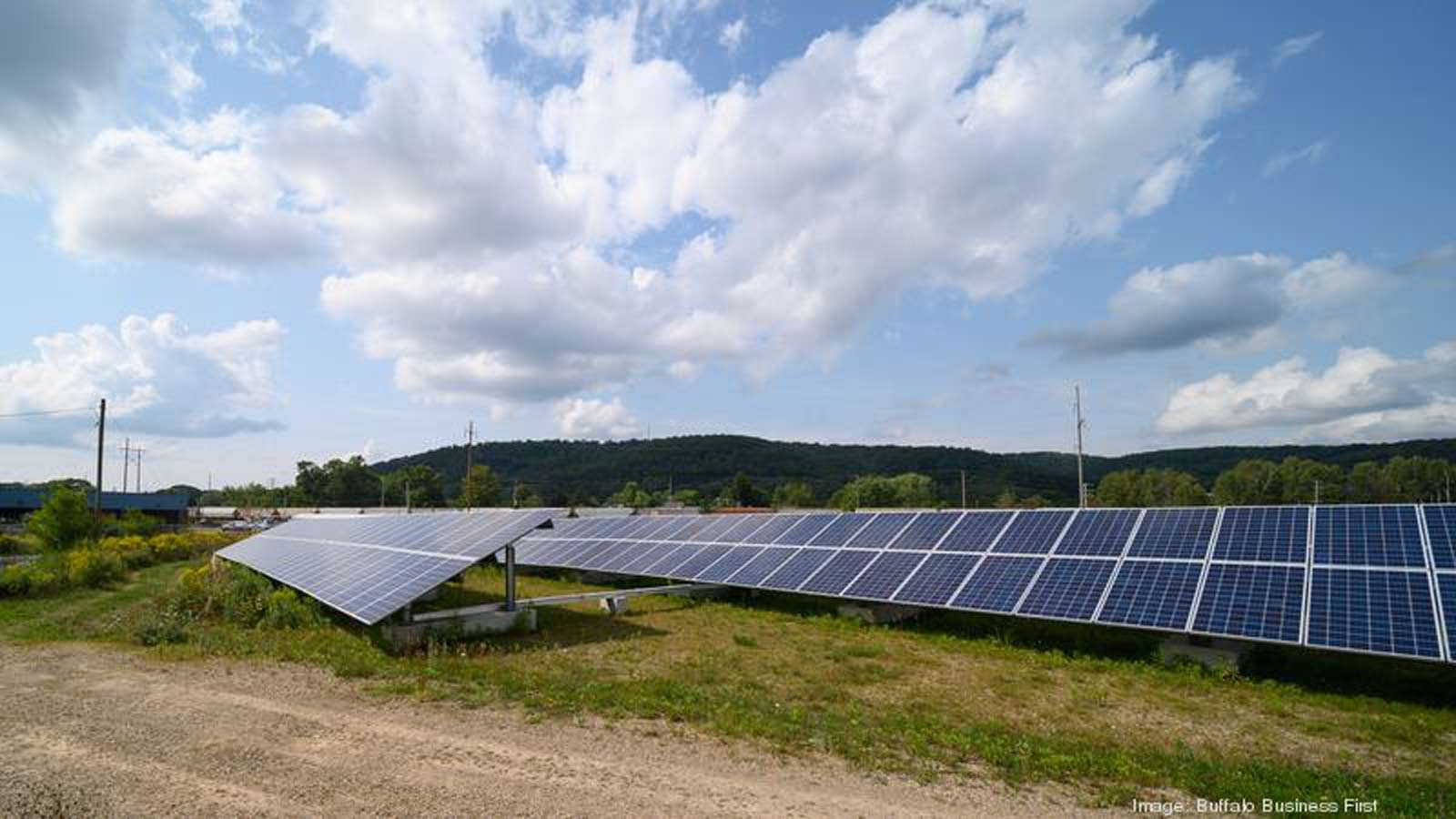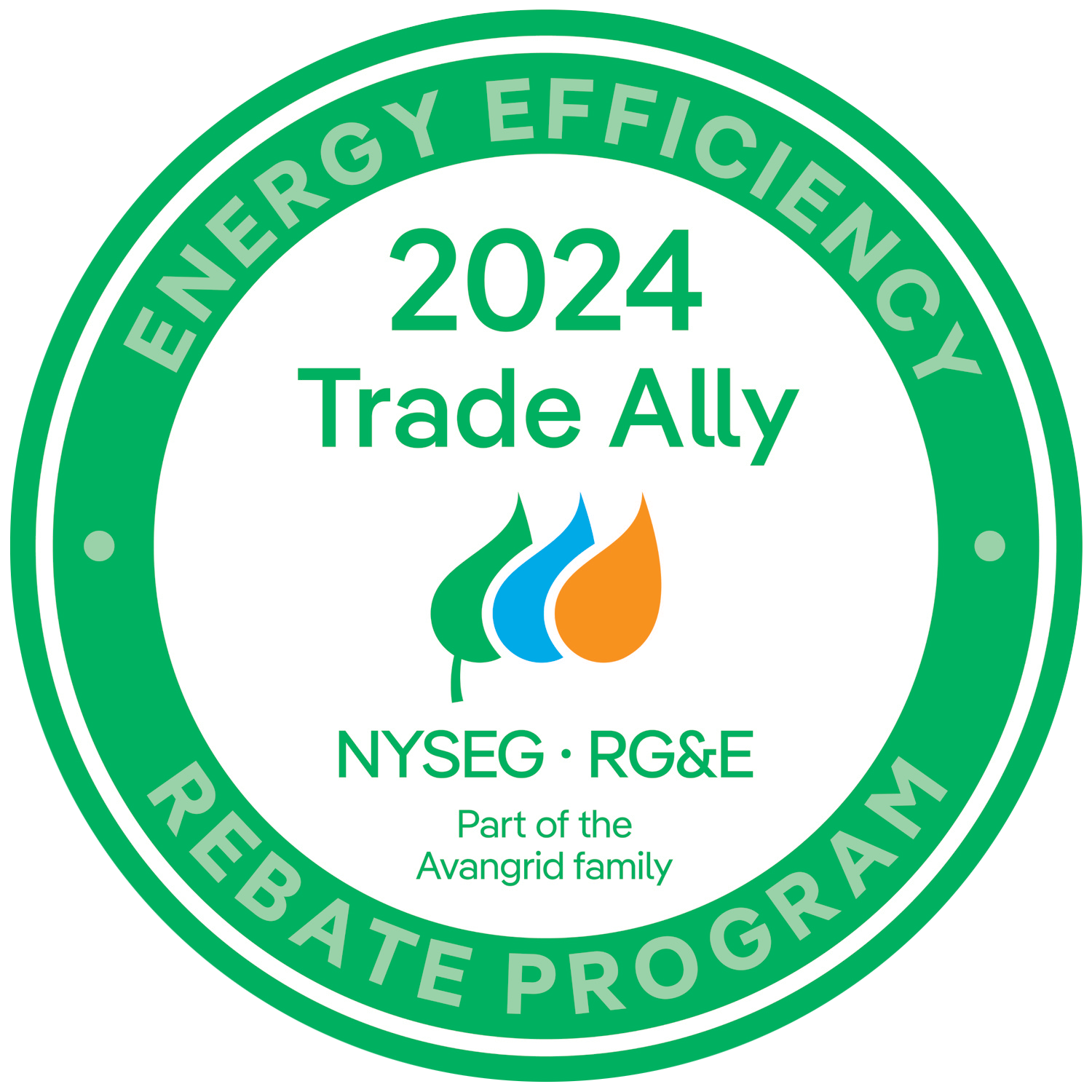WNY solar companies prepare for growth as governments emphasize clean energy
February 1, 2023
Feb 1, 2023, 6:00am EST Joed Viera
Buffalo Solar Inc. has about $20 million worth of projects in the works for 2023. That's four times more than this time last year, according to projects director Jeremy McCool.
"Not only are we scaling in size, we're also handling a lot more volume," McCool said.
New state and federal initiatives are driving new interest in solar, and Western New York companies are prepared to reap the benefits.
The Inflation Reduction Act, passed by Congress and signed by President Biden in August, includes a slew of new and expanded incentives for green energy programs.
Meanwhile, New York's new climate scoping plan calls for 70% of all electricity in the state to come from renewable sources by 2030 and proposes steep costs for companies that can't curtail their greenhouse gas emissions.
As the state works to move away from fossil fuels, solar companies are excited to fill the gap.
"That can only be a good thing for the solar energy industry," said Rob Gauchat, vice president for sales and marketing for Amherst- based Solar Liberty.
Solar Liberty primarily does residential and community solar projects, though it does about 20 commercial projects a year. The company has seen an uptick in interest since the passage of the Inflation Reduction Act.
The full impact of the state's new scoping plan won't be felt for a while, he said.
"It's going to take time for this to digest, and it's not like there's going to be this transition overnight; it's going to take time," Gauchat said. "I do think it's going to become more and more part of the conversation."
The new government initiatives come at a time of growth and change for Buffalo Solar, based in Depew.
The company used to do a mix of residential and commercial projects but last year shut down its residential side to focus solely on commercial and industrial customers, McCool said.
"Our commercial pipeline was doing very well and starting to scale more than our residential pipeline, and faster," he said.
The company has expanded its reach beyond New York, and is now working on projects in seven Northeastern states, according to McCool.
Buffalo Solar has a relatively small team and relies on subcontractors to handle most of the field work.
The discussions about stricter climate regulations at the state and federal level have had the company fielding more calls from businesses that want to reduce their carbon footprint.
"Until a couple years ago only the largest companies have cared about that," McCool said.
Before the Inflation Reduction Act, government incentives would cover roughly 50% of the cost of a commercial solar project, and up to 70% in rural areas, McCool said. Now, up to 75% of the cost is covered for many commercial buildings. Many rural projects can be fully paid for with government incentives, McCool said.
There's still an up-front cost to business owners, as some government incentives aren't paid until after the project is complete.
"It's turned a good investment often into a no-brainer," he said.
Jacob Tierney
Reporter - Buffalo Business First


 NYSEG
NYSEG

